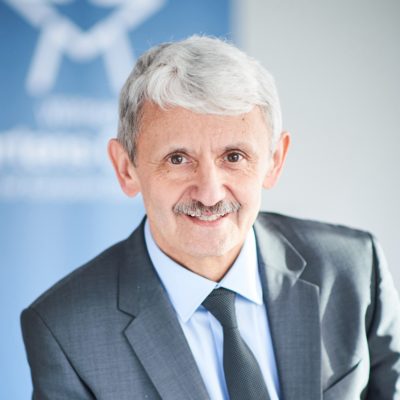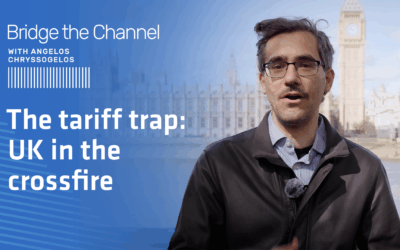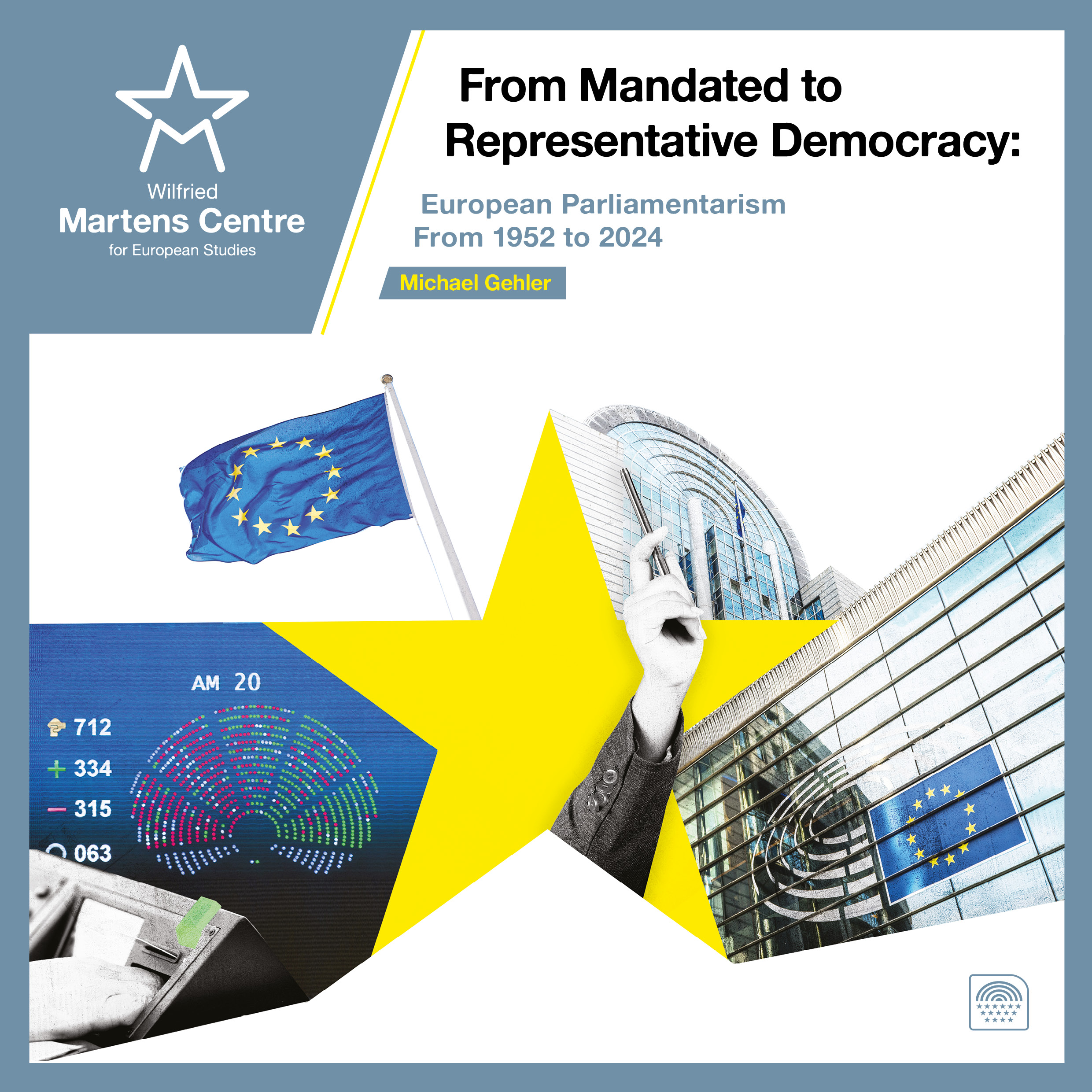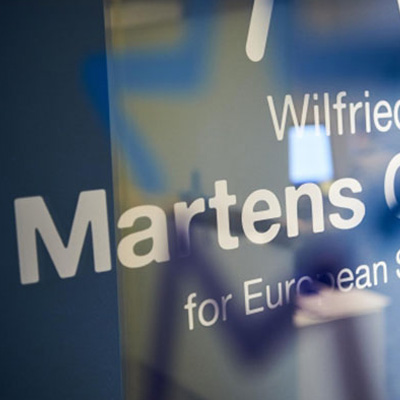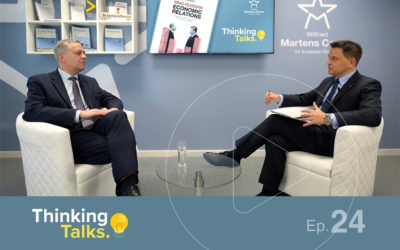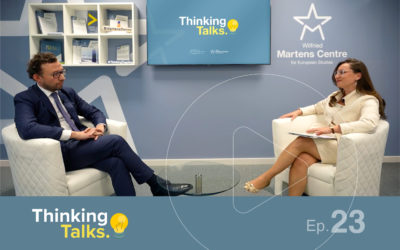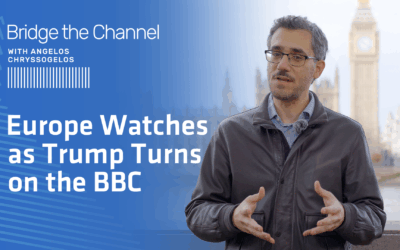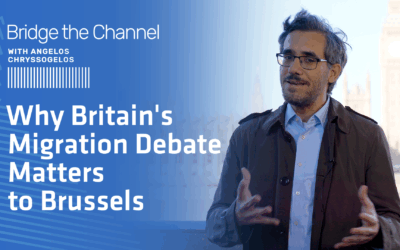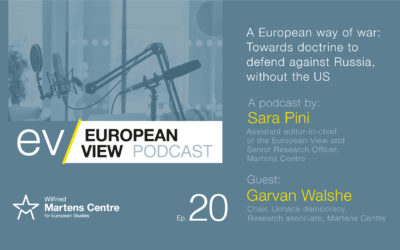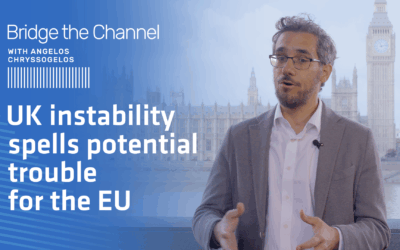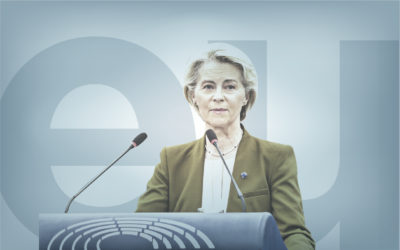Can the Conference on the Future of Europe Deliver Results?
03 May 2021
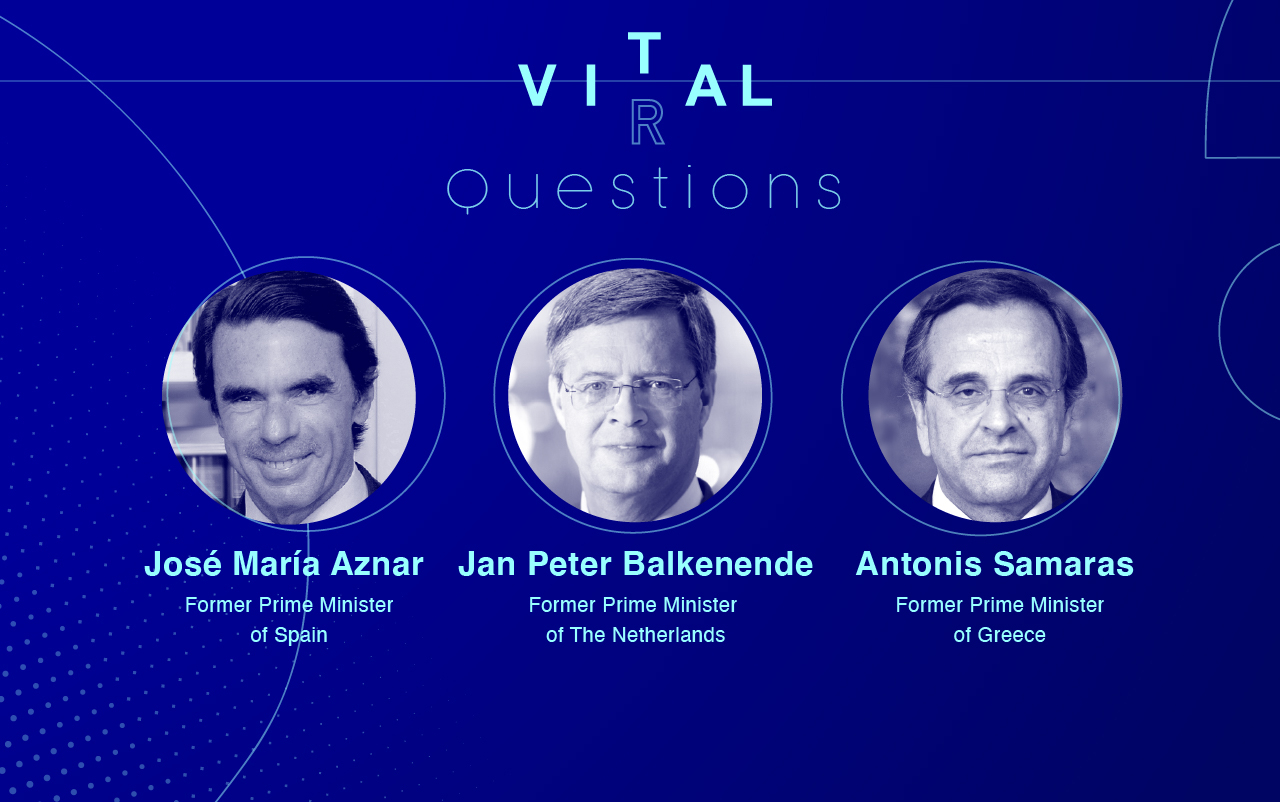
1. The Conference on the Future of Europe (CoFoE) is expected to envision Europe’s future on a 20 to 30-year horizon. The years of various crises and the ongoing pandemic have shown that we need a more effective and rules-based European Union. Could this Conference deliver effective results, extending beyond its mere intentions?
José María Aznar, former Prime Minister of Spain: The Conference on the Future of Europe has to show that the future is Europe. The objectives of the Conference are very worthwhile and necessary, but its results will remain in the realm of mere management if the political will necessary for the substantive reform that is essential for our future does not emerge. For the Conference to deliver effective results, it must first build the political will to succeed in advance.
The future of Europe depends on our ability to build a common sensibility as Europeans, a difficult but not impossible task, and on the Union’s response to the major challenges it faces: 1) economic downturn, a consequence of the COVID-19 pandemic; 2) the structural challenges provoked by Brexit; 3) the ideological challenge provoked by populist and authoritarian movements within many member states; 4) the institutional challenge, the intra- institutional relationship between the European Parliament, the European Commission, and the European Council.
One of the consequences of the most recent European Elections is the disappearance of the great coalition between the Social Democrats and the European People’s Party, which was, until now, the basis for European institutions. The European Parliament might have a weaker and less proactive institutional role, as it faces fresh difficulties in building up majorities. We are moving towards a more intergovernmental Europe. The CoFoE must re-think the role of Parliament and the Commission, because the decision-making centre will be in the Council and in the capitals of the member states.
Jan Peter Balkenende, former Prime Minister of The Netherlands: The start of the CoFoE was not convincing. It took a long time to get started and there was endless squabbling over who should hold the Presidency. It is therefore a bad start and it is necessary to quickly strengthen the credibility of this initiative. There is also every reason to do so. If the corona crisis, climate change, geopolitical power shifts, the migration issue, the security situation, and competitive relations show one thing, it is that the future of Europe and the European Union within it depends on a vision of said future, joining forces and fostering unity. The biggest mistake Europe can make is to wait, to be at the mercy of geopolitical struggles elsewhere and a lack of dynamism, both internal and external.
If the Conference is to become meaningful, a detailed analysis must be made of where Europe now stands, a renewed common perspective for the future must be offered, and a programme proposal must be developed with concrete actions. The Conference should inspire, through a European ideal based on European values. What drives us as Europeans and what kind of world do we want for generations to come? The Conference must innovate by providing new insights and ideas that will give impetus to practical steps to move Europe forward. Which concrete actions are necessary? The Conference must challenge implementation by means of clear step-by-step plans. What are we going to do in concrete terms? Intentions have no meaning without actions and implementation. The success of the Conference will depend on the realisation of inspiration, innovation and implementation.
Antonis Samaras, Former Prime Minister of Greece: A political entity – a state or a Union – can only survive if it has clearly defined rules and clearly defined priorities. Both rules and (political) priorities jointly define who we are, our unity, and our character. We cannot have rules without priorities, and we cannot have priorities, without rules. We need both. As reality evolves within our societies and around us, our priorities change, and our set of rules should accommodate this evolution. If our set of rules is too stringent or “inflexible”, we will not evolve. On the other hand, if our rules are very “lax”, there is a chance that we will might evolve towards different “paths”, or disintegrate. So, we need to promptly adjust both our rules and our priorities. We must also make them mutually compatible. Unfortunately, the way we handled the pandemic crisis was not very “flattering” for the way our rules operate in the face of such challenges. The way we handled the influx of illegal immigrants, or Turkey, or Ukraine, does not flatter our geopolitical priorities. We have a lot to learn from our current problems, a lot of reflection to do regarding our perspectives, and a lot of restructuring must take place in our internal framework…
2. The audit of the functioning of the Union and the future of Europe is in the hands of EU citizens. They consider democracy, human rights, rule of law, but also the Union’s economic power as the greatest benefits of the EU, according to the latest Eurobarometer survey. Are these benefits sufficiently protected and resilient?
José María Aznar: These benefits are sufficiently protected and resilient because the EU is first and foremost a normative power. The EU’s economic power is enormous. Today, the European Single Market is the largest barrier-free economic area in the world, encompassing more than 500 million citizens with a gross domestic product (GDP) of around 13 trillion euros. Since its creation, the EU has been, for its member states, the main basis for peace, security, and prosperity. In this sense, the EU is a success story. That is why, for many years, we took the European project for granted. We convinced ourselves that the successful integration of European nations could not be reversed because it was, in fact, responsible for our development and our greatest achievements. And so, it was. But it must be underlined that the benefits that the EU has created for its member states are under attack from within and from outside, and its resistance must be solidified.
The credibility of the democratic and representative process of the institutions of European societies has eroded, as well as their ability to generate prosperity and create opportunities. Populist parties have capitalised on the political and electoral effects of it. Now, the enemies of the liberal order are stronger than in the past because they are joining forces against us. Perhaps not all populist movements are the same, and maybe there are some differences between nationalists and separatists in different countries. But they agree in their hatred against the EU because it is the most successful integration process and the best example of what liberal democracy, social economy, free trade, and globalisation can achieve if they are effectively supported by political reforms.
Jan Peter Balkenende: Europe has brought a lot to its citizens: peace, human rights, democracy, prosperity, solidarity, equal treatment, food security, economic unification, legal certainty. Tremendous achievements that are sometimes better perceived by people outside the European Union than by those who are part of Europe. In addition to these achievements, it must also be noted that there are concerns: the Stability and Growth Pact was not sufficiently complied with, concerns about the lack of the rule of law are increasing in several countries, there are concerns about the functioning of democratic institutions, the need for reforms is interpreted differently, and solidarity between countries appears to be unruly. The CoFoE can strengthen the credibility of the European project by thoroughly discussing the critical points and making proposals for reinforcement. Where human rights and democracy are being tormented worldwide, Europe must take criticism of its own functioning seriously and work towards improvement, by hearing the voices of citizens, by tackling errors in a credible way and by always keeping an eye on achieving results. With this the European project can be made resilient.
Antonis Samaras: Yes, these are the cornerstones that define our collective culture, who we are, how we have evolved through history and where we are going. And no, we should not take them for granted! Because they run the risk of being eroded, by groups of the authoritarian alt-right who undermine democracy, or by the “politically correct” extreme left, who undermine social cohesion. We need a “new growth agenda”, to improve competitiveness through restructuring; we need a new “progressive agenda” to maintain democracy through growth; and we also need a “new conservative agenda”, to maintain social cohesion through change. We definitely need new geopolitical priorities, vast domestic reforms, and protection of economic prospects for our middle classes. Europe will never inspire its citizens at home, unless it gains international respect beyond its borders. The European project can either shine or shrink! So, let’s make it shine again. As it deserves…
3. Could you, as an EU citizen, share your biggest concern and biggest dream when it comes to the future of Europe? What would be your advice to overcome such a concern and, on the other hand, how to achieve such a dream?
José María Aznar: As an EU citizen, I am concerned about the political, social, and economic consequences of the pandemic caused by COVID-19, on which Europe’s immediate future and its resilience depends. In the longer term, I am concerned about the European Union’s place in the world. The international liberal order is changing due to the pandemic and to other internal challenges such as authoritarianism, neo-totalitarianism, illiberal democracies, populism, the rise of revisionist powers, etc. The EU, in order to occupy an important place in the world, must strengthen its ties with the US and the transatlantic relationship; this is not a dream, but a historical fact and experience.
I believe that the history of the EU is a great success story. European success cannot be explained without the success of the Atlantic policy, it cannot be explained without the Atlantic relationship, and it cannot be explained without our American friends and allies. The Atlantic pact is more than a military pact, it is also a political, cultural, or historical commitment to act together, the United States, Europe, and our other allies. It is not just a geographical concept, it is a pact based on values which have underpinned the greatest expansion of freedom, prosperity, and democracy in the history of the world. Therefore, presenting these values and preserving what these Atlantic values mean seems to me to be a crucial task, to achieve an important EU role in the international liberal order and turn Europe into our common future.
Jan Peter Balkenende: My main concern is that Europe is losing opportunities for the future due to a lack of urgency, internal division, allowing things to run their course without tackling them, too little regard for the common interest, and too much regard for purely national interests. This danger affects all areas: economy, security, migration, environment. However, Europe has shown at crucial times that new perspectives could be developed through cooperation. That is also possible now! My biggest dream is for Europe to become a world-class player by taking the lead in building a better world. The global agenda is embedded in the United Nations Sustainable Development Goals, tackling the climate issue, building a circular economy, and tackling inequality. That agenda offers hope for the future. European values, the concept of a social and environmental market economy and Rhineland thinking can be a source of inspiration in taking that lead. We must work with inspiration and passion on a new European ideal!
Antonis Samaras: My biggest concern is that Europe might become “irrelevant” vis-aa-vis the rest of the world, from a geopolitical perspective. Or “irrelevant” to its own citizens, from a growth and domestic prosperity perspective. My biggest hope is that we will eventually break away from present-day deadlocks and re-inspire our citizens. We need a new policy to build new infrastructure and handle debt. We need a new policy for our middle classes to adjust to the looming Fourth Industrial Revolution. We need a new policy for energy sufficiency and energy supply safety for the coming decades. We need a new policy for illegal immigrants and internal security. We need a policy for defending our common European borders. We need to understand that unity and integration within Europe cannot proceed without controlling our limits and expanding our influence beyond our limits! If we lose control on our hinterland, we will fracture and dissolve. We need a new policy for projecting our security priorities abroad. We need to show that the European project is a shining paradigm, generating freedom, growth, and prosperity for the European peoples – and hope for its allies… We need a new social pact with our citizens and a new credibility pact with our allies abroad. The European project has come a long way so far. And it has a long way to go, in the future. We must reshape it and re-launch it! And we have to do it fast.


